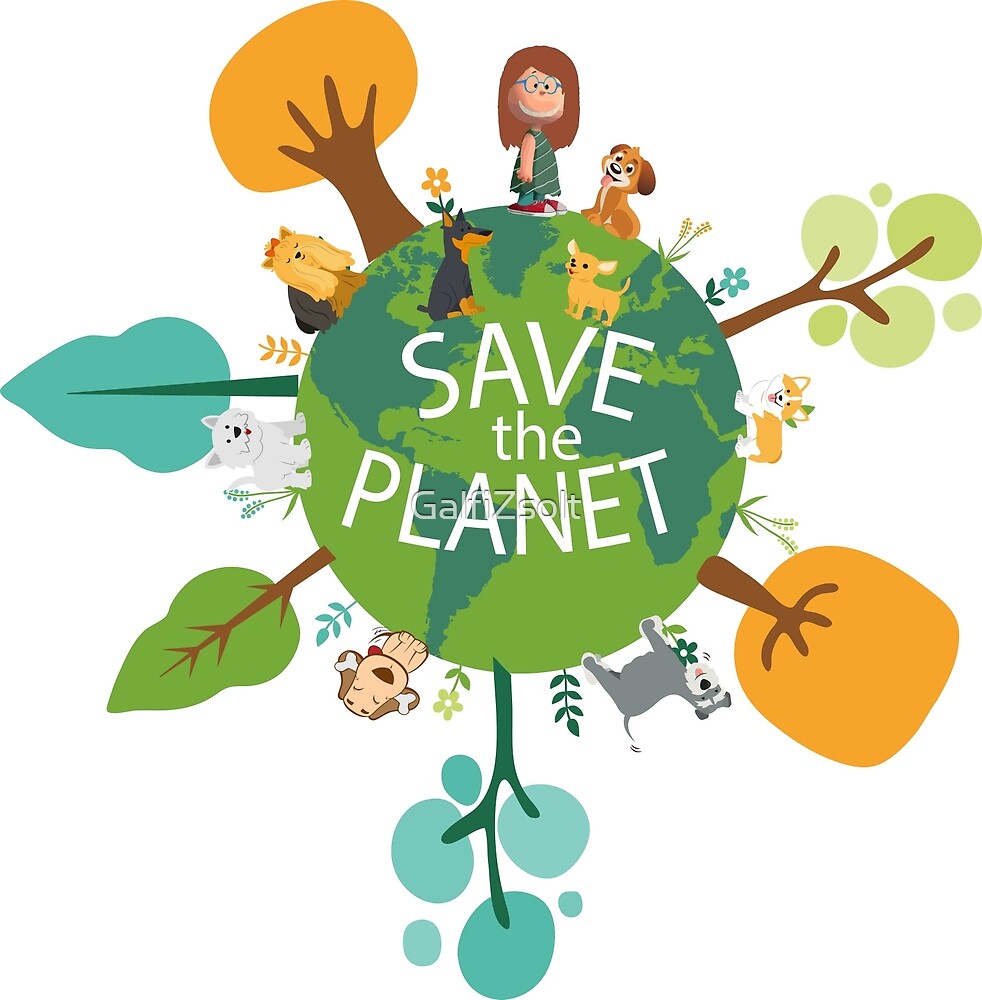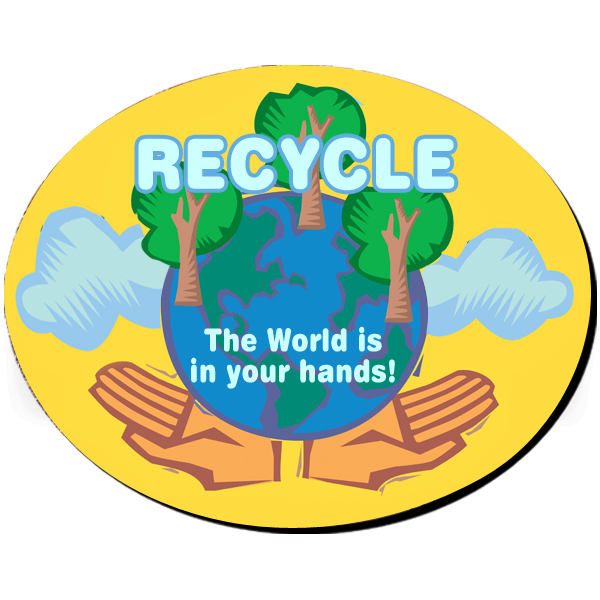What is happening in Year 3 ...

Figure 1. Save the planet (2020).
Hello parents,
Welcome to Term 3 of Humanities and Social Sciences (HASS).
Every Friday Year 3 will be extremely busy learning to be active citizens. Your child will develop the skills and knowledge they need to become active and informed citizens within their society. We will be exploring the importance of democratic decision-making and participation within the community (Australian Curriculum Assessment and Reporting Authority [ACARA], 2018).
The Project
With National Recycling Week just around the corner, we will be discussing what a responsible citizen looks like and what they can do at school, home and the community. To begin, an image with the message 'save our planet’ will be shown. Students will engage in a class discussion, considering questions such as: why is it important to recycle? What happens if we do not recycle? Do we as citizens have responsibility to look after our surrounding environment? What can we do in the classroom, at home, in the playground and when we eat to ensure we are effectively recycling? From this, students will work in groups to create a video presentation that advertises National Recycle Week to the rest of their class. Their video presentation must capture the importance of recycling, what the implications are to our environment if people do not correctly recycle and how the community can effectively help their surrounding environment by recycling. Once students have completed their presentation it will be shown to the rest of their peers and a vote will take place to determine which best achieved the goal of selling the importance of National Recycle Week. A local member from Rethink Waste will be invited to view the presentations.
 |
| Figure 2. Recycle (Clipart, 2020). |
This project forms strong links to multiple areas of the Australian Curriculum including Civics and Citizenship, English, Sustainability and Critical and Creative Thinking. In particular, it strongly relates to the Year 3 Civics and Citizenship content descriptor (ACHASSK072) (ACARA, 2018). Additionally, it underlies the importance of sustainability, encouraging students to contribute to a more sustainable way of living.
Once students have looked at the effects of recycling and completed their presentations they will take action by being active citizens through their preparation and involvement in National Recycle Week. We would really love for all parents to come along on Friday 13th November with gloves to assist our class on cleaning up the school grounds. For those of you who cannot make it this day, spend some time on the weekend with your child picking up some rubbish... and don't forget to recycle!
Active Citizenship
For Civics and Citizenship education (CCE) to be successful, students learning must incorporate participation in real, authentic, local and global issues (Tudball & Brett, 2014). This project encourages a democratic classroom, offering rich and authentic learning opportunities, creating a stimulating student-centred working environment. It utilises an inquiry-based approach that allows students to pose meaningful questions, engage in deep thinking and evaluate and assess information (Gilbert, R., & Hoepper, B. (Eds.) (2017).
It is vital that we, as teachers and parents, teach our children to be active citizens now rather than ‘future citizens’ (Phillips, 2010). For this to be the case, it is crucial that we do not just rely on schooling. With a wide amount of academic literature stating that families, in particular, play a central role in a child’s approach towards active citizenship (Ersoy, 2012).
References
Australian Curriculum, Assessment and Reporting Authority. (2018) The Australian Curriculum: Humanities and Social Sciences (Version 8.1). (Humanities and Social Sciences, all year levels, all curriculum elements, all curriculum dimensions). Retrieved from http://www.australiancurriculum.edu.au/download/f10.
Ersoy, A. (2012). Mothers’ perceptions of citizenship, practices for developing citizenship conscience of their children and problems they encountered. Educational sciences: Theory and practice, 12 (3), 2120-2124.
Gilbert, R., & Hoepper, B. (Eds.) (2017). Teaching Humanities and Social Sciences (edn). Melbourne: Cengage.
Phillips, L. (2010). Social justice storytelling and young children’s active citizenship. Discourse: Studies in the cultural politics of education, 31 (3), 363-376.
Tudball, L., & Brett, P. (2014). What matters and what’s next for civics and citizenship education in Australia? Social educator, 32 (2), 4-15.

Hi Liv,
ReplyDeleteI really like your first blog post.
Your introduction is clear to read in regards to the learning intentions which was good. The questions which you chose for the students to ask about in the class discussion were well selected inquiry questions I thought. Although your overall project idea and its links to active citizenship were well planned it would be nice to read more about what the students parents/carers can do at home to support their learning. I know you mentioned it in your last paragraph about how they play a vital role but could there be any examples that you could suggest to how they can help and in what ways maybe.
Thanks, Katie.
Hi Katie
DeleteThank you for taking the time to read my first ever blog.. I was a bit nervous about it all to be honest.
I will definitely have a little bit more of a think in what ways I can include the parents more.
Thanks, Liv
Hi Liv,
ReplyDeleteWell don with your first blog!
- The amount of information that you have given to parents in regards to the curriculum and the learning students will undertake is good. Enough to inform but not too much jargon to overwhelm.
- Your project on recycling is something that the students can really get involved in. They will also be able to see the need for action on a global and local level. The use of ICT and the guest speaker will make for engaging learning for the students.
- If I could make a suggestion, it might be to add more figure or tables to support your written content.
Thanks, Sarah
Hi Sarah,
DeleteThanks for your comment and feedback.
I will have a look for some tables that could work well with my blog. When you say figures, do you mean references or more images?
Thanks again, Liv
Hi Liv,
DeleteSorry for the confusion, I did mean images.
Thanks, Sarah